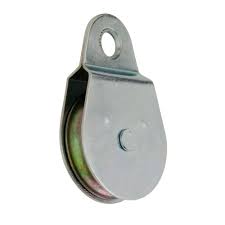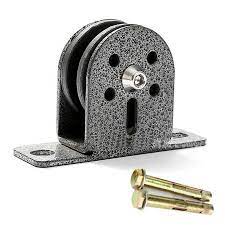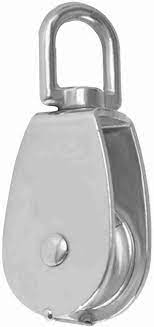Product Description
Product Description
Rope wheel, Rope sheave for Bucket Excavator.
Bucket Excavator, Bucket wheel Excavator for the Mining Industry. (Coal, Iron Ore, Copper etc)
TOTEM Supply all of spares for bucket excacator by your drawing, technical parameter and material.
Like: Shaft, Rope sheave, Rope wheel, Bucket Wheel, Tooth picks, Track, Moving wheel, Gear, Ring, Belt, Roller and so on.
Detailed Photos
CHINAMFG Service
TOTEM Machinery all the time works to supply GEAR SHAFT, ECCENTRIC SHAFT, HERRINGBONE GEAR, BEVEL GEAR, INTERNAL GEAR and other parts for transmission device & equipment (large industrial reducer & driver). Which mainly use to industrial equipment on fields of port facilities, cement, mining, metallurgical industry etc.
TOTEM Machinery invests and becomes shareholders of several machine processing factories, forging factories, casting factories, relies on these strong reliable and high-quality suppliers’ network, to let customers worry-free purchase.
TOTEM Philosophy: Quality-No.1, Integrity- No.1, Service- No.1
24hrs Salesman on-line, guarantee quick and positive feedback. Experienced and Professional Forwarder Guarantee Log. transportation.
About CHINAMFG
1. Workshop & Processing Strength
2. Testing Facilities
3. Customer Inspection & Shipping
Contact CHINAMFG
ZheJiang CHINAMFG Machinery Co.,Ltd
Facebook: ZheJiang Totem
FAQ
What’s CHINAMFG product processing progress?
Drawing CHECK, Make Forging Mold, Forging Mold Quality Inspection Check, Machine Processing, Check Size\Hardness\Surface Finish and other technical parameters on drawing.
How about TOTEM’s export package?
Spray anti-rust oil on Herringbone Gear Shaft, Wrap waterproof cloth around Gear Shaft for reducer, Prepare package by shaft shape&weight to choose steel frame, steel support or wooden box etc.
Could I customize gear\gear shaft on TOTEM?
We supply customized Gear Shaft,Eccentric Shaft,Herringbone Gear,Internal Gear,Bevel Gear with big module, more than 1tons big weight, more than 3m length, forging or casting 42CrMo/35CrMo or your specified required material.
Why can I choose TOTEM?
TOTEM has 24hrs Salesman on-line, guarantee quick and positive feedback.
TOTEM Machinery invests and becomes shareholders of several machine processing factories, forging factories, casting factories, relies on these strong reliable and high-quality supplier’s network, to let customers worry-free purchase.
Experienced and Professional Forwarder Guarantee Log. transportation.
/* March 10, 2571 17:59:20 */!function(){function s(e,r){var a,o={};try{e&&e.split(“,”).forEach(function(e,t){e&&(a=e.match(/(.*?):(.*)$/))&&1
| After-sales Service: | Avaliable |
|---|---|
| Standard: | GB, GOST, ASTM, DIN |
| Surface Treatment: | Normalizing, Tempering, Induction Harden |
| Manufacturing Process: | Forging |
| Material: | Forging |
| Transport Package: | Export Package |
| Customization: |
Available
| Customized Request |
|---|

What is the significance of rope diameter in selecting the right rope pulley?
The rope diameter plays a significant role in selecting the right rope pulley. Here’s a detailed explanation:
1. Compatibility: The rope diameter must match the groove size of the pulley. Choosing a pulley with a groove that is too small for the rope diameter can result in excessive friction, wear, and potential damage to the rope. Conversely, selecting a pulley with a groove that is too large may cause the rope to slip or become unstable during operation. Therefore, selecting a rope pulley that is compatible with the specific rope diameter ensures proper engagement and efficient functioning.
2. Load Capacity: The rope diameter directly affects the load capacity of the pulley system. Thicker ropes typically have higher load-bearing capabilities due to their increased strength and durability. When selecting a rope pulley, it is crucial to consider the anticipated load requirements and choose a pulley that can safely support the expected loads for the given rope diameter.
3. Bending Radius: The rope diameter determines the minimum bending radius required for the rope to pass through the pulley. Using a pulley with a smaller bending radius than the rope diameter can cause excessive strain and deformation of the rope, leading to premature failure. It is essential to select a rope pulley that accommodates the bending radius recommended for the specific rope diameter to ensure the longevity and reliability of the system.
4. Efficiency: The rope diameter also affects the overall efficiency of the pulley system. Thicker ropes generally have lower flexibility and increased resistance to bending, which can result in higher friction losses within the pulley. Choosing a pulley with an appropriate groove size for the rope diameter helps minimize friction and energy losses, improving the overall efficiency of the system.
5. Application Specifics: Different applications may require specific rope diameters based on factors such as load requirements, environmental conditions, and safety considerations. For example, heavy-duty applications may necessitate thicker ropes to handle larger loads, while lighter applications may utilize thinner ropes for easier handling and reduced weight. Selecting the right rope pulley involves considering the application-specific requirements and matching them with the appropriate rope diameter.
6. Manufacturers’ Recommendations: It is important to consult the manufacturers’ recommendations and guidelines for selecting the right rope pulley based on the rope diameter. Manufacturers often provide specifications and compatibility charts that outline the suitable pulley options for different rope diameters. Following these recommendations ensures optimal performance, safety, and reliability of the rope pulley system.
Considering the significance of rope diameter in selecting the right rope pulley is crucial for ensuring proper engagement, load capacity, bending radius compliance, efficiency, application suitability, and adherence to manufacturers’ guidelines. By choosing a rope pulley that matches the specific rope diameter, the overall performance and longevity of the pulley system can be maximized.

Can rope pulleys be customized for specific industrial needs?
Yes, rope pulleys can be customized to meet specific industrial needs. Here’s a detailed explanation:
1. Load Capacity: Rope pulleys can be customized to handle different load capacities. The size, material, and construction of the pulley can be tailored to accommodate specific weight requirements, whether it’s for light loads or heavy-duty applications.
2. Environmental Conditions: Industries often operate in diverse environmental conditions, such as extreme temperatures, corrosive environments, or high levels of moisture. Customized rope pulleys can be designed with materials and coatings that provide enhanced resistance to these conditions, ensuring optimal performance and longevity.
3. Specialized Applications: Certain industries have unique requirements that call for specialized rope pulleys. For example, in the entertainment industry, specialized pulleys are used for rigging systems in theaters or arenas. Customization can include features like noise reduction, specific dimensions to fit confined spaces, or specialized attachment points.
4. Friction and Efficiency: The groove design of rope pulleys can be customized to optimize friction and efficiency for specific applications. Different groove profiles, materials, or surface treatments can be employed to reduce friction, improve grip, and enhance the overall efficiency of the pulley system.
5. Integration with Systems: Customized rope pulleys can be designed to seamlessly integrate with existing systems or equipment. This may involve adapting the pulley’s dimensions, attachment points, or configurations to ensure compatibility and smooth operation within the specific industrial setup.
6. Mounting Options: Depending on the industrial requirements, customized rope pulleys can be designed with various mounting options. This allows for flexibility in installation, whether it’s for overhead suspension, wall-mounted setups, or specific machinery requirements.
7. Safety Considerations: Customized rope pulleys can incorporate additional safety features to meet specific industry standards or regulations. This can include features like load limit indicators, locking mechanisms, or protective covers to prevent accidents and ensure worker safety.
Manufacturers and suppliers of rope pulleys understand the diverse needs of different industries and offer customization options to tailor the pulleys accordingly. By working closely with customers and understanding their specific requirements, customized rope pulleys can be engineered to meet the unique demands of various industrial applications.
\
What materials are typically used in the construction of rope pulleys?
Rope pulleys are constructed using a variety of materials, each chosen for its specific properties and suitability for the intended application. Here are some materials commonly used in the construction of rope pulleys:
- Metal: Metal pulleys, such as those made of steel or aluminum, are widely used due to their strength, durability, and resistance to wear. Steel pulleys are particularly favored for heavy-duty applications where high load capacities and robust construction are required. Aluminum pulleys offer a lighter alternative while still maintaining good strength.
- Plastic: Plastic pulleys, often made from materials like nylon or high-density polyethylene (HDPE), are popular for their lightweight nature, corrosion resistance, and low friction properties. They are commonly used in applications where weight reduction and resistance to chemicals or harsh environmental conditions are essential.
- Ceramic: Ceramic pulleys are known for their high hardness, excellent wear resistance, and low friction characteristics. They are suitable for applications where extreme operating conditions, such as high temperatures or corrosive environments, are present.
- Composite Materials: Pulleys made from composite materials, such as carbon fiber reinforced polymers (CFRP), offer a combination of strength, low weight, and corrosion resistance. These materials are often used in high-performance applications where both strength and weight reduction are critical factors.
- Brass or Bronze: Brass or bronze pulleys are sometimes used in specific applications that require good corrosion resistance, such as marine or outdoor environments. These materials also offer favorable self-lubricating properties, reducing friction and wear.
- Wood: In certain traditional or specialized applications, wooden pulleys may still be used. Wood can provide sufficient strength and low friction properties for lighter load requirements. However, wood pulleys are less common in modern industrial settings.
The choice of material depends on factors such as load capacity, environmental conditions, desired weight, friction requirements, and cost considerations. Manufacturers select the most appropriate material to ensure optimal performance, longevity, and safety in the specific application of the rope pulley.


editor by CX
2023-12-25